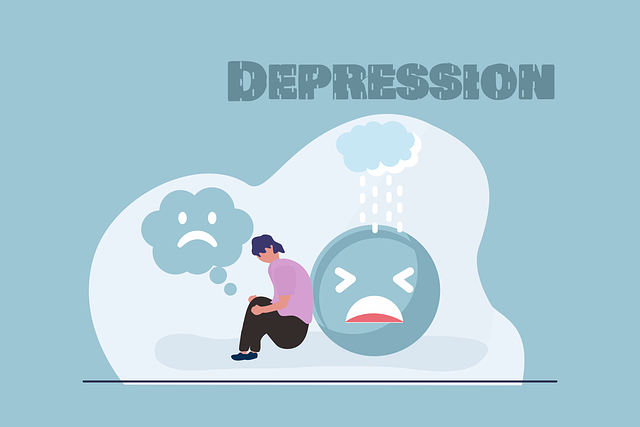Risk assessment is a critical aspect of successful Denver ADD-ADHD therapy, focusing on identifying and managing potential hazards. Strategies like Mind Over Matter, Empathy Building, and Conflict Resolution Techniques empower clients to cope with challenges. Burnout prevention among therapists involves self-care, boundary setting, and support systems. Building resilience aids in managing complex client dynamics, including co-occurring conditions. Evidence-based emotional well-being techniques benefit both clients and therapists. Effective risk management through comprehensive assessments and tailored interventions enhances overall client care. Continuous education and professional development for mental health professionals ensure the latest knowledge and approaches, mitigating risks, fostering empathy, and preventing burnout.
Mental health professionals, including therapists specializing in Attention Deficit Disorder (ADD) and ADHD in Denver, face unique risks. This article explores comprehensive risk assessment practices tailored to their field, addressing critical challenges specific to the Denver ADD-ADHD therapy context. We delve into strategic risk management techniques, emphasizing the importance of continuous education and professional development. By implementing these measures, therapists can enhance patient safety, mitigate potential harms, and ensure ethical and effective care in their practice.
- Understanding Risk Assessment in Mental Health Practice
- Key Risks and Challenges Faced by ADD-ADHD Therapists in Denver
- Implementing Effective Risk Management Strategies
- Continuous Education and Professional Development for Mitigating Risks
Understanding Risk Assessment in Mental Health Practice

Risk assessment is a fundamental aspect of mental health practice, crucial for ensuring patient safety and guiding treatment plans. For professionals offering Denver ADD-ADHD therapy or specialized care, understanding this process involves recognizing potential hazards and implementing effective strategies to mitigate them. It’s not merely about identifying risks but also about leveraging Mind Over Matter principles to foster resilience and promote positive outcomes.
This involves employing Empathy Building Strategies to connect with clients on a deeper level, understanding their unique experiences, and preparing them for potential challenges. Additionally, Conflict Resolution Techniques play a vital role in navigating complex situations, ensuring that therapeutic relationships remain strong even when facing adversity. By integrating these approaches, mental health professionals can create a safe space, foster trust, and empower clients to manage risks effectively.
Key Risks and Challenges Faced by ADD-ADHD Therapists in Denver

The field of mental health practice, particularly Denver ADD-ADHD Therapy, presents unique challenges for therapists. One of the primary risks is the potential for burnout, a significant concern given the demanding nature of this work. Therapists often juggle heavy caseloads and intense client needs, which can lead to emotional exhaustion if not carefully managed. Burnout prevention is crucial; it requires therapists to prioritize self-care, set healthy boundaries, and access support systems both within their professional networks and personally.
Furthermore, resilience building is essential for Denver ADD-ADHD Therapists to navigate the complex dynamics of working with individuals dealing with attention disorders. These clients often present with co-occurring conditions, adding layers of complexity that demand adaptive and creative therapeutic approaches. Promoting emotional well-being through evidence-based techniques is vital not only for client outcomes but also for maintaining therapists’ own mental health and resilience in the face of these challenges.
Implementing Effective Risk Management Strategies

In the dynamic field of mental health care, particularly within Denver ADD-ADHD Therapy settings, effective risk management is paramount to ensuring both client safety and professional well-being. Implementing robust risk assessment tools and strategies allows practitioners to anticipate potential challenges and proactively mitigate risks. This proactive approach involves a comprehensive evaluation of various factors, including past client behaviors, present mental health status, and environmental influences that could impact treatment outcomes. By integrating these insights into clinical practice, therapists can create tailored interventions aimed at fostering emotional regulation and promoting clients’ overall emotional well-being.
Moreover, cultivating empathy building strategies is a cornerstone of successful risk management in mental health therapy. Through empathetic interactions, therapists establish trust, encourage open communication, and gain valuable insights into clients’ experiences. This connection fosters a sense of safety, enabling individuals to explore complex emotions and challenges more effectively. Incorporating emotional regulation techniques within therapy sessions equips clients with valuable tools to navigate stressors, thus reducing potential risks associated with emotional dysregulation.
Continuous Education and Professional Development for Mitigating Risks

Mental health professionals face unique challenges that require continuous education and professional development to mitigate risks effectively. Staying abreast of the latest research and best practices is essential in this dynamic field, especially for those offering Denver ADD-ADHD Therapy or specialized services. Regular training sessions, workshops, and conferences allow practitioners to enhance their skills in diagnostic techniques, therapeutic approaches, and crisis management.
By investing in ongoing education, professionals can build resilience and refine empathy-building strategies. This proactive approach ensures they remain equipped to handle complex cases, manage stress, and avoid burnout. Such continuous learning not only benefits the mental wellness of the practitioners but also enhances their ability to provide high-quality care to their clients.
Mental health professionals, especially those specializing in Denver ADD-ADHD therapy, must prioritize risk assessment as a cornerstone of their practice. By understanding potential risks and implementing robust risk management strategies, therapists can create safer environments for clients. Continuous education and professional development are vital tools to stay informed about best practices and emerging challenges in the field, ensuring high-quality care for individuals seeking support for ADD/ADHD in Denver.














